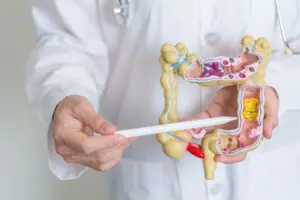
Acidity causes: Acidity, also known as acid reflux, affects millions of people daily and occurs when stomach acid flows back into the oesophagus. From a burning sensation in the chest to bloating and nausea, acid reflux can trigger widespread discomfort in people. Most people don’t realise that it’s their daily habits that are making this condition worse.
Here are 8 things that can trigger acidity
- Don’t overeat in one sitting
A large meal puts extra pressure on the lower oesophageal sphincter (LES). LES is the valve between your stomach and oesophagus. Increased pressure against the LES can force acid back up.
Instead, practice portion control. Divide the meal into a number of parts that can be consumed throughout the day. Instead of three large meals, opt for five to six smaller meals spread across the day.
Also Read | How to manage acid reflux: Symptoms, causes, and lifestyle tips
- Skipping meals
Try to avoid giving a long gap between meals. Missing your meal can cause your stomach to produce more acid than necessary. With nothing to digest, this acid can irritate your stomach lining and lead to heartburn.
Maintain a consistent meal schedule and eat small portions every three hours.
- Lying down after meals
Lying down immediately or sleeping after meals can cause the stomach acid to travel upward. It’s generally recommended to wait at least 2-3 hours after eating before lying down.
- Avoid eating foods that can trigger
Some foods and beverages can trigger heartburn or acidity. Avoid eating spicy food as this can slow digestion and increase stomach pressure. Deep-fried foods or high-fat meats can relax the LES, which can lead the stomach acid coming back up into your oesophagus. Caffeinated or carbonated beverages can also weaken the LES.
Instead, choose herbal teas and baked or grilled food items.

- Don’t wear tight clothes
Wearing tight clothes around the waist can put pressure on your abdomen and force the food back from your stomach. Choose light, comfortable and airy clothes.
- Alcohol and smoking
Smoking and alcohol can increase the production of stomach acid and also weaken the LES. Smoking can also reduce saliva production and can directly damage the oesophagus. Hence, it’s advised to drink in moderation and avoid smoking completely.
- Eating too quickly
Eating too fast leads to poor digestion and air swallowing, both of which can aggravate acidity.
- Overuse of painkillers
Regular use of medications like ibuprofen and aspirin can inflame the stomach lining and exacerbate acidity.
Also Read | 10 simple tips to prevent acidity
Acidity can also be triggered by stress and anxiety. Acidity isn’t just about what you eat. It’s influenced by multiple daily habits, many of which are easily overlooked. By identifying and changing these triggers, you can manage your symptoms and improve your overall digestive health.








